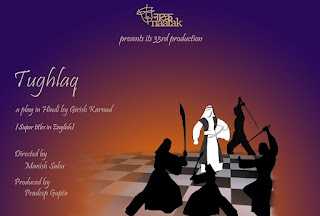Online Discussion
“Fiction and Lies”
Fiction and lie both are interwoven. Essential part of fiction is ‘Imagination’. Fiction includes wide range of imaginative beauty, which gives extraordinary look to any piece of Art. At the same time it is truth that imagination cannot survive without lies. Therefore Fiction will have lies within itself.
Shakespeare, Oscar Wilde, Herman Melville, F. Scott
Fitzgerald, and Dostoyevsky are but a few of the great authors who have used
lies and liars as keys to their writing. William Shakespeare was the greatest writer who ever lived. In
his play ‘Othello’, he created arguably the greatest liar in the history of
literature. Iago is a prime example of someone who lies to punish. What motivates Iago to lie is
lack of promotion.he
decides to revenge himself by lying about Othello's wife, Desdemona,
insinuating that she is having an affair with the lieutenant who has Iago's
desired position. As a result Othello kills Desdemona even if she was innocent.
Thus, we can say that Fiction and lies go together. (Reeves)
“There’s this idea that a novel can no longer represent
reality; that only memoir, which is rooted in an idea of an authentic
experience, can. And I think that’s a nonsense.” - Richard Flanagan (Flanagan)
This quote is very true to fiction. Fiction always tries to escape from reality. Apt example is “Huckleberry Finn” by Mark Twain. Mark Twain has many different characters lie and deceive to show the causes and effects of lying. Many of the characters lie so often that they do not realize how their lying affects people. Some of them characters lie so often that they cannot distinguish the difference between reality and deception, and they start to lose their sense of self-respect. Lying and deception, a motif that constantly occurs through the book, was shown by characters like Huckleberry Finn, the Duke, and the King that lie for many reasons.
Another great example of Fiction and lie is “Harry Potter” by
J.K Rowling. This novel is fantasy and mostly based on imaginative world. One will
find the magical world that is quite false to reality. The basic idea of magic,
magical and mythical creature is fantastic therefore lie.
Fiction may be lie but it tells truth of ‘Author’ ‘Writer’. And
his/her mental state and condition. As it is said by Abraham Rothberg,
“... Serious fiction is a lie that tells the truth. Fiction
can introduce you into the lies and truths of other people's minds and hearts,
to your own country and time, or strange, foreign places and other eras, into
the most public forums and the most private scenes of human intimacy; it can
make you see, hear, feel, love, hate, forgive, judge, understand, and yet not
be bound by the consequences of all those activities, though you are there as a
participant-observer in the most personal and informed ways.” (Pappas)
FICTION, no matter how surreal or otherworldly, is a response
to reality. An author creates characters based on people he knows or has met or
has heard about and often one character is a combination of several people. Fiction
tells us truth about our surrounding world. Whatever happens in literature may
happen in real world. The best example is George Orwell’s Novel ‘1984’ which
was published in 1949. At the time of its publication it might sound surreal
but now it’s true to the domination and power of Donald J. Trump.
Thus to conclude we can say that fiction may made of lies but
it tells the reality of life. Anything may happen in life as the reflection of
literature. At the same time Writer should have “Freedom of Expression”. Author
can reflect or write anything he wants or thinks. Then and then true literature
can emerge.
Works Cited
Flanagan, Richard. Richard Flanagan on lies,
literature, and Australia’s greatest conman. 27 February 2018
<https://www.theguardian.com/books/2017/mar/20/richard-flanagan-on-lies-literature-and-australias-greatest-conman>.
Pappas, Peter. Fiction
is a Lie that Tells the Truth: Reflections on Life and Literature. 16
January 2010. 27 February 2018
<http://peterpappas.com/2010/01/fiction-lie-that-tells-truth.html>.
Reeves, W. J. Lies
and Literature. 27 February 2018 <https://www.questia.com/magazine/1G1-54879236/lies-and-literature>.




Comments
Post a Comment